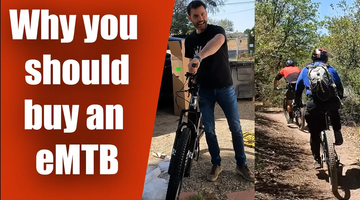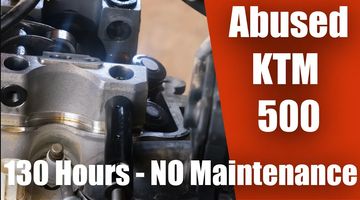Almost 8 percent of adults (1 in 13 people) in the United States suffer from Asthma and the illness has been steadily growing since the early 1980s according to the CDC. For many people, asthma takes aggressive sporting activities off the table, but for those with milder symptoms an asthma diagnosis does not have to be the end of your outdoor life. While you should absolutely take the advice of your doctors, there’s a whole mental battle that you likely can overcome when dealing with any illness or limitation and it starts with how you frame the problem.
I didn’t always know it was asthma
As a kid, whenever I felt gross while exercising, I usually assumed that I was either actually sick, or that I’d just pushed a little too hard. For most of my life, I also assumed everyone else felt the same way I did. In grade school, I was a runner. Track and field, marathons, foot races with classmates, I loved moving. And I was fast! Most of the kids who might come close to keeping up with me appeared to be just as out of breath as I felt by the end, so I didn’t really think anything was wrong; mostly.
There were moments when I wondered if it was normal that my chest rattled a bit if I breathed too deeply while twisting, or if it really was ok that my throat felt tight in the middle of a track and field event. As I got older, and these symptoms gradually got worse, I increasingly worried something was wrong with me. But what can you do with vague mild symptoms that come and go?
It wasn’t until my early thirties that I finally admitted to myself something was actually wrong, and only then by chance. My son, then about 6, was diagnosed with mild asthma and prescribed a rescue inhaler. On a whim one day after an intense 25 mile bike ride, I took a hit of his inhaler “just to see what would happen”. Instantly I felt my chest relax and my breathing clear. I hadn’t even realized how tight my lungs had gotten, I’d grown used to forcing my breathing after hard work-outs, it typically passed eventually and I’d forget.
I didn’t need to try a second puff to know for sure I had asthma. I promptly got officially diagnosed and picked up my own rescue inhaler. Over the past five years, I’ve learned a few “hacks” for dealing with the limitations asthma imposes on extreme sports and I want to share them here in the spirit of overcoming adversity.
Rage-quit impulses
It can be super tempting to let handicaps block us from doing the things we love. I don’t mean physically mind you - some issues just cannot be walked-off like my dad always expected - but mentally. We lose only when we give up on something because it feels harder than it should, or because of the unfairness of having to work harder for the same result our buddies are getting for “free”. In my case, asthma is one of those things.
I can breathe just fine if I’m not exerting myself. But, as soon as I hit an aerobic peak, my chest locks up and I feel like I’m working with half a lung. I can’t catch my breath, I can’t breath deeply enough to feed straining muscles, and I really can’t sustain that level of “push” for very long without getting lightheaded and worrying that I’ll pass out. I try sometimes, vision narrowing, lungs straining, but it’s foolish, and I know it. If I do push too hard, I end up physically ill, lying on the side of the trail straining to regain my breath, and my balance, hoping I don’t throw up in my helmet.
All of this makes it hard to even want to tackle the next hill. It’s worse in competitive settings where endurance is key (like hard enduro races). There comes a moment on just about every ride I take where I’m well and truly done, or at least that’s what it feels like. It might be a failed hill climb, or the extra effort of kickstarting a stubborn bike, or a gnarly rock crawl I just can’t quite nail. Whatever the setting, the limitations in my chest drive a kind of impotent frustration that inspires rage quitting.
There are of course interventions I do follow. Hit the inhaler before the hard stuff ever starts, remember to stop along the trail to re-up the meds, and of course, never ever forget to bring the inhaler along, no matter how tame the adventure is supposed to be. But all these things slow me down, and that sucks.
I’ve learned, however, that thinking too much about how life sucks makes it suck worse. Cognitive scientists call it negative framing or spiraling. Essentially, we are all telling our own internal narrative in real time, and it can go either way, so why not tell one where we win in the end?
Put a positive spin on it
Positive framing sounds a bit wooly, I get it. But there’s a ton of proven science behind how it works. Your frame is the reference through which you see your world (like a window, or a filter). You get to pick your reference. The kicker is that whatever reference you consciously chose immediately starts to impact how you feel about a situation. And that feeling reinforces the power of your reference.
The science behind how this works is actually pretty straightforward. Because your brain cannot consciously process all the data it receives, your subconscious has to pick the most relevant bits to pass along to your active awareness. When you choose a framing, your subconscious mind creates a data filter which is applied to all incoming information. Only things that fit the filter get passed to your awareness. So if you allow yourself to think negatively, a disproportionate volume of facts that reinforce that negativity reach your awareness while other more positive facts never make it through. All of which leaves you with the impression that the real world closely matches how you feel, regardless of which direction you initially chose to lean.
In simple terms, choosing to feel happy about something, actually makes you scientifically happier while choosing to be sad, makes you sadder. In both cases, your experience is of an objective feeling that you’re sure is totally real. And it’s not just about happy v. sad. It works for all kinds of emotional states. Success v. failure, good person v. bad person, winner v. loser. Still skeptical? Look at all the writing around both war and team sports. Everyone is saying the same thing in slightly different terms. To win, you have to see yourself winning.
To be clear, it’s not about searching for facts that make you feel happy. It’s about first choosing to be happy, which then directs your subconscious to find matching facts to reinforce that perspective. The choice comes first, then the feeling. Life falls in line behind.
But what does this have to do with extreme sports?
I’ve begun to actively choose a positive frame for the limits I face on the trail. In practice, this mostly means forgiving myself for not being the fastest. It means being actively ok with stopping once in a while for an inhaler hit. It means remembering to relax, or pre-breathe during hill climbs and other hard stuff. It means choosing to take obstacles in smaller chunks so I don’t run out of breath too soon. It means remembering that pushing it too far has a cost (often I get sloppy and crash because I can’t get oxygen to my muscles fast enough to keep them strong).
The irony is this framing actually makes me faster and more competitive than I might be if I let despair or frustration take over my perspective. I’ve learned the hard way that banging my head against a hill won’t help me get up it, no matter how many tries I take. Quite the reverse. If I don’t take the time to take care of myself, I actually can’t get through challenges that I should be able to handle. In this way, framing physically improves my performance. It’s not until I chose to be ok with the fact that I have some challenges with breathing, that I’m able to start conquering the things I try.
Go try it for yourself
Positive framing works in all parts of life, parenting, finances, careers, marriages. But for me, the thing that matters most is being able to keep up with my riding buddies on the trail. Which means taking my asthma seriously enough to actively manage it, instead of getting depressed and investing too much thought into wishing it’d just go away.
When I do this right, I find my riding is still plenty of fun. I hit the hills as hard as anyone, and the rock crawls. I might skip an attempt here and there to catch my breath, but I’m still getting up all the same stuff everyone else is riding, even if I’m a little further back in the queue than I’d like. And that’s ok, because it means I’m out on the trails, doing what I love! Which is more than a lot of perfectly healthy people can claim. The entire point of the WannaBe community is that we’re never going to win Erzeburg, but that sure as hell does NOT mean we won’t give it a go. Being willing to try anyway, whatever is in your way personally, is the best frame you can choose.









